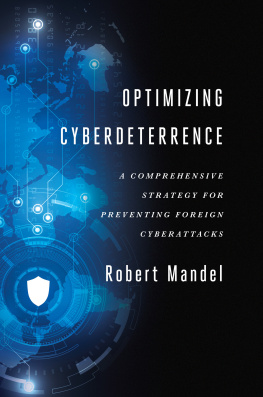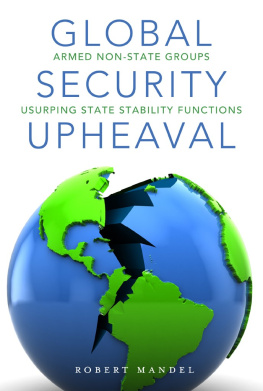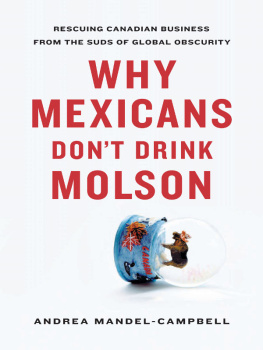Robert Mandel - Global Data Shock
Here you can read online Robert Mandel - Global Data Shock full text of the book (entire story) in english for free. Download pdf and epub, get meaning, cover and reviews about this ebook. year: 2018, publisher: Stanford University Press, genre: Politics. Description of the work, (preface) as well as reviews are available. Best literature library LitArk.com created for fans of good reading and offers a wide selection of genres:
Romance novel
Science fiction
Adventure
Detective
Science
History
Home and family
Prose
Art
Politics
Computer
Non-fiction
Religion
Business
Children
Humor
Choose a favorite category and find really read worthwhile books. Enjoy immersion in the world of imagination, feel the emotions of the characters or learn something new for yourself, make an fascinating discovery.

- Book:Global Data Shock
- Author:
- Publisher:Stanford University Press
- Genre:
- Year:2018
- Rating:3 / 5
- Favourites:Add to favourites
- Your mark:
- 60
- 1
- 2
- 3
- 4
- 5
Global Data Shock: summary, description and annotation
We offer to read an annotation, description, summary or preface (depends on what the author of the book "Global Data Shock" wrote himself). If you haven't found the necessary information about the book — write in the comments, we will try to find it.
Global Data Shock — read online for free the complete book (whole text) full work
Below is the text of the book, divided by pages. System saving the place of the last page read, allows you to conveniently read the book "Global Data Shock" online for free, without having to search again every time where you left off. Put a bookmark, and you can go to the page where you finished reading at any time.
Font size:
Interval:
Bookmark:
Global Data Shock
Strategic Ambiguity, Deception, and Surprise in an Age of Information Overload
Robert Mandel
Stanford University Press
Stanford, California
Stanford University Press
Stanford, California
2019 by the Board of Trustees of the Leland Stanford Junior University. All rights reserved.
No part of this book may be reproduced or transmitted in any form or by any means, electronic or mechanical, including photocopying and recording, or in any information storage or retrieval system without the prior written permission of Stanford University Press.
Printed in the United States of America on acid-free, archival-quality paper
Library of Congress Cataloging-in-Publication Data
Names: Mandel, Robert, author.
Title: Global data shock : strategic ambiguity, deception, and surprise in an age of information overload / Robert Mandel.
Description: Stanford, California : Stanford University Press, 2019. | Includes bibliographical references and index.
Identifiers: LCCN 2018052654 (print) | LCCN 2018056416 (ebook) | ISBN 9781503608979 (e-book) | ISBN 9781503608252 (cloth; alk. paper) | ISBN 9781503608962 (pbk.; alk. paper)
Subjects: LCSH: National security. | Security, International. | Intelligence service. | Information resources management. | Disinformation.
Classification: LCC UA10.5 (ebook) | LCC UA10.5 .M327 2019 (print) | DDC 355/.033dc23
LC record available at https://lccn.loc.gov/2018052654
Typeset by Newgen in 10/14 Minion
Cover design: Christian Fuenfhausen
Information Overload
A wealth of information creates a poverty of attention.
Herbert A. Simon (American decision theorist), Designing Organizations for an Information-Rich World
Its not information overload. Its filter failure.
Clay Shirky (American Internet expert), Its Not Information Overload; Its Filter Failure
Theres a danger that too much stuff cramming in on peoples minds is just as bad for them as too little, in terms of the ability to understand, to comprehend.
Bill Clinton (American president), quoted in Todd S. Purdum, Clinton Plans to Lift Public out of Funk
Ambiguity
There is no greater impediment to the advancement of knowledge than the ambiguity of words.
Thomas Reid (Scottish philosopher), Inquiry and Essays
Accepting that the world is full of uncertainty and ambiguity does not and should not stop people from being pretty sure about a lot of things.
Julian Baggini (British philosopher), What Is This Foolish Lust for Uncertainty?
Speech was given to man to disguise his thoughts.
Charles Maurice de Talleyrand (French statesman and diplomat), quoted in Bertrand Berre, Memoirs of Bertrand Berre, vol. 4
Deception
In time of war, when truth is so precious, it must be attended by a bodyguard of lies.
Winston Churchill (British prime minister), The Second World War, vol. 5
Though fraud in other activities be detestable, in the management of war it is laudable and glorious, and he who overcomes an enemy by fraud is as much to be praised as he who does so by force.
Niccol Machiavelli (Italian historian and statesman), The Art of War
Life is the art of being well deceived; and in order that the deception may succeed it must be habitual and uninterrupted.
William Hazlitt (British writer), The Round Table
Surprise
War is, at first, the hope that one will be better off, then, the expectation that the other fellow will be worse off, then, the satisfaction that he isnt any better off, and finally, the surprise at everyones being worse off.
Karl Kraus (Austrian writer), Half-Truths and One-and-a-Half Truths
Always mystify, mislead, and surprise the enemy, if possible.
Stonewall Jackson (American soldier), quoted in John D. Imboden, Stonewall Jackson in the Shenandoah
Man [has] a limited capacity for change. When this capacity is overwhelmed, the consequence is future shock.
Alvin Toffler (American futurist), Future Shock
Contents
Figures and Tables
Figures
Tables
Acknowledgments
This studymy fifteenth bookhas been incredibly enjoyable to ponder and write because it focuses on the complexities many countries national governments and private citizens face in coping with a dramatically different quantity and quality of information compared to the past. Many of us feel overwhelmed by the scope and pace of change in data we perceive as relevant to our livesunable to rapidly and correctly interpret trends or to distinguish whats true from whats false.
I dedicate this book to those in (1) the intelligence community tasked with interpreting foreign information, sorting through ambiguous, deceptive, and surprising data, and (2) the data science community driven to find new and better ways to derive useful insights from incoming information. I am deeply indebted to my undergraduate student research assistant Micael Lonergan for all her truly excellent work on this project. I also appreciate the ideas received from computer scientists and from government defense and intelligence officials. However, I alone take full responsibility for any disarming distortions or egregious errors found here.
Introduction
THIS BOOK EXPLORES two intertwined central global puzzles:
How does information overload generally affect strategic ambiguity, deception, and surprise, and when does information overload seem most and least likely to increase the chances of strategic ambiguity, deception, and surprise?
How do strategic ambiguity, deception, and surprise generally affect global security, and when do these manipulation techniques seem to have their most positive and negative impacts on global security?
Many public officials and private citizens sweepingly conclude that, regarding data acquisition, more is always better for decision legitimacy and effectiveness, and, regarding data transmission, complete clarity, transparency, and predictability are always better for global security. In contrast, this investigation somewhat counterintuitively finds that todays information overload frequently facilitates strategic ambiguity, deception, and surprise, challenging enlightened internationalist expectations of emerging global trust and cooperation. Increasing information access can dramatically worsen the signal-to-noise ratio,the world around them. In exploring circumstances affecting information overloads impact on strategic manipulation and on global security, and in recommending policies to manage global data shock, this analysis serves as a corrective to rosy assessments surrounding traditional big data analysis solutions and as a reminder that even with more information and better fact-checking and data assessment tools, today we may be out of touch with the world around us.
Analytical Scope
Given the breadth and depth of information and communication distortions, this books scope is carefully circumscribed. This study considers the contrasting perspectives of both initiators and targets of strategic ambiguity, deception, and surprise because information misinterpretation and manipulation are embedded in two-way communication, for which responsibility is shared, making the quest to find fault or isolate who is right seems fruitless. Ten relevant case studies are explored: the 2017 foreign security policy style of American president Donald Trump; the 2016 Brexit vote to leave the European Union; the 20022003 nondiscovery of weapons of mass destruction in Iraq; the 2014 Russian annexation of Crimea; the 2011 Fukushima nuclear disaster; the 2008 Russian invasion of Georgia; the 2007 Israeli attack on the Syrian al-Kibar nuclear plant; the 2005 Andijan massacre in Uzbekistan; the 2001 al-Qaeda terrorist attacks on the United States; and the 1990 Iraqi attack on Kuwait.
Next pageFont size:
Interval:
Bookmark:
Similar books «Global Data Shock»
Look at similar books to Global Data Shock. We have selected literature similar in name and meaning in the hope of providing readers with more options to find new, interesting, not yet read works.
Discussion, reviews of the book Global Data Shock and just readers' own opinions. Leave your comments, write what you think about the work, its meaning or the main characters. Specify what exactly you liked and what you didn't like, and why you think so.









